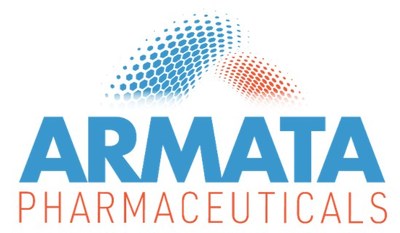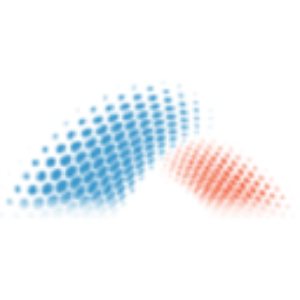Armata Pharmaceuticals Announces Positive Topline Data from the Phase 1b/2a diSArm Study of Intravenously Administered AP-SA02 in Complicated Staphylococcus aureus Bacteremia
Rhea-AI Summary
Positive
- Significant efficacy demonstrated with 88% responder rate vs 58% for placebo at Test of Cure
- 100% clinical response rate in AP-SA02 treated subjects vs 75% in placebo group
- Effective against both MRSA and MSSA infections, showing broad applicability
- No serious adverse events related to treatment
- Manufacturing capacity established for over 10,000 treatment courses annually
- First clear evidence of phage therapy efficacy against systemic infections in a randomized controlled trial
Negative
- Two subjects experienced adverse events possibly related to the study drug
- Requires frequent dosing (every six hours for five days)
News Market Reaction
On the day this news was published, ARMP gained 75.56%, reflecting a significant positive market reaction.
Data tracked by StockTitan Argus on the day of publication.
All primary endpoints for safety, tolerability, and clinical response in the intent-to-treat population met
AP-SA02 arm significantly improved clinical outcomes and prevented relapse compared to best available antibiotic
therapy
No treatment-related serious adverse events were observed with repetitive intravenous dosing
"This trial and these data are what the field of phage therapy has been eagerly awaiting for over a decade and represent a critical leap forward for Armata and for the role of bacteriophages in combating life-threatening systemic infections," stated Dr. Deborah Birx, Chief Executive Officer of Armata.
The diSArm study (NCT05184764) was a Phase 1b/2a, multicenter, randomized, double-blind, placebo-controlled, multiple ascending dose escalation study of the safety, tolerability, and efficacy of intravenous AP-SA02 in addition to best available antibiotic therapy ("BAT") compared to BAT alone (placebo) for the treatment of adults with complicated SAB.
Safety and efficacy were assessed in the ITT population, which included all subjects (n=50) who received at least one dose of AP-SA02 or placebo.
AP-SA02, administered IV every six hours for five days, was well-tolerated, with no serious adverse events related to the study drug. Two subjects had adverse events that were possibly related to the study drug: one with transient liver enzyme elevation and one with hypersensitivity that resolved with discontinuation of vancomycin.
The primary clinical efficacy endpoint for the Phase 2a portion of the diSArm study was clinical outcome (responder rate) in subjects with complicated bacteremia, measured at (i) Test of Cure ("TOC") for AP-SA02, defined as one week following the end of IV treatment with AP-SA02 (day 12), (ii) TOC for BAT, defined as one week following the end of IV BAT, and (iii) end of study ("EOS"), defined as four weeks following the end of IV BAT.
A statistically significant increase in investigator-assessed responder rate was observed at TOC for AP-SA02 (day 12) in AP-SA02 treated subjects (
Supporting the investigator assessment, clinical outcome was assessed by the Clinical Efficacy Adjudication Committee, comprised of leading doctors in the bacteremia field, who agreed that subjects who received placebo had a
"This clinical trial is groundbreaking in two fundamental ways: firstly, this is the first clear evidence in a randomized controlled trial of the efficacy of phage against a serious systemic pathogen that is responsible for significant morbidity and mortality in
"We previously demonstrated the persistence of AP-SA02 in the IV space on multiple days one hour post IV push. Critically, these trial results support AP-SA02 homing to different sites of infection, presumably penetrating biofilms, and infecting and lysing the target S. aureus bacteria, independent of antibiotic resistance patterns and site of infection."
"These data, including the favorable safety profile of AP-SA02, warrant that we move as rapidly as possible towards initiation of a pivotal trial. I am grateful to the patients who participated in this study, our excellent trial sites, and the unrelenting commitment of the Armata team. Finally, this progress and this initial breakthrough would not have been possible without ongoing support from Innoviva and the
"Importantly, Armata has developed the capacity to manufacture drug product at its cGMP facility in
Armata's latest corporate presentation with topline results from the Phase 1b/2a diSArm study can be found here.
About Armata Pharmaceuticals, Inc.
Armata is a clinical-stage biotechnology company focused on the development of high-purity pathogen-specific bacteriophage therapeutics for the treatment of antibiotic-resistant and difficult-to-treat bacterial infections using its proprietary bacteriophage-based technology. Armata is developing and advancing a broad pipeline of natural and synthetic phage candidates, including clinical candidates for Pseudomonas aeruginosa, Staphylococcus aureus, and other pathogens. Armata is committed to advancing phage therapy with drug development expertise that spans bench to clinic including in-house phage-specific current Good Manufacturing Practices ("cGMP") manufacturing to support full commercialization.
Forward Looking Statements
This communication contains "forward-looking" statements as defined by the Private Securities Litigation Reform Act of 1995. These statements relate to future events, results or to Armata's future financial performance and involve known and unknown risks, uncertainties and other factors which may cause Armata's actual results, performance or events to be materially different from any future results, performance or events expressed or implied by the forward-looking statements. In some cases, you can identify these statements by terms such as "anticipate," "believe," "could," "estimate," "expect," "intend," "may," "plan," "potential," "predict," "project," "should," "will," "would" or the negative of those terms, and similar expressions. These forward-looking statements reflect management's beliefs and views with respect to future events and are based on estimates and assumptions as of the date of this communication and are subject to risks and uncertainties including risks related to Armata's development of bacteriophage-based therapies; ability to staff and maintain its production facilities under fully compliant cGMP; ability to meet anticipated milestones in the development and testing of the relevant product; ability to be a leader in the development of phage-based therapeutics; ability to achieve its vision, including improvements through engineering and success of clinical trials; ability to successfully complete preclinical and clinical development of, and obtain regulatory approval of its product candidates and commercialize any approved products on its expected timeframes or at all; and Armata's estimates regarding anticipated operating losses, capital requirements and needs for additional funds. Additional risks and uncertainties relating to Armata and its business can be found under the caption "Risk Factors" and elsewhere in Armata's filings and reports with the
Armata expressly disclaims any obligation or undertaking to release publicly any updates or revisions to any forward-looking statements contained herein to reflect any change in Armata's expectations with regard thereto or any change in events, conditions or circumstances on which any such statements are based.
Media Contacts:
At Armata:
Pierre Kyme
ir@armatapharma.com
310-665-2928
Investor Relations:
Joyce Allaire
LifeSci Advisors, LLC
jallaire@lifesciadvisors.com
212-915-2569
![]() View original content to download multimedia:https://www.prnewswire.com/news-releases/armata-pharmaceuticals-announces-positive-topline-data-from-the-phase-1b2a-disarm-study-of-intravenously-administered-ap-sa02-in-complicated-staphylococcus-aureus-bacteremia-302458664.html
View original content to download multimedia:https://www.prnewswire.com/news-releases/armata-pharmaceuticals-announces-positive-topline-data-from-the-phase-1b2a-disarm-study-of-intravenously-administered-ap-sa02-in-complicated-staphylococcus-aureus-bacteremia-302458664.html
SOURCE Armata Pharmaceuticals, Inc.







